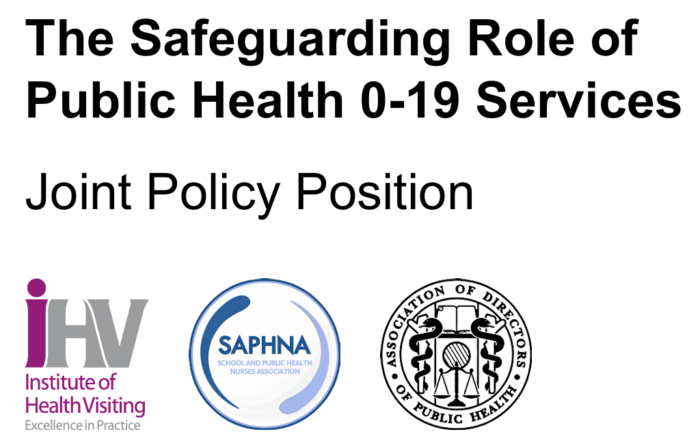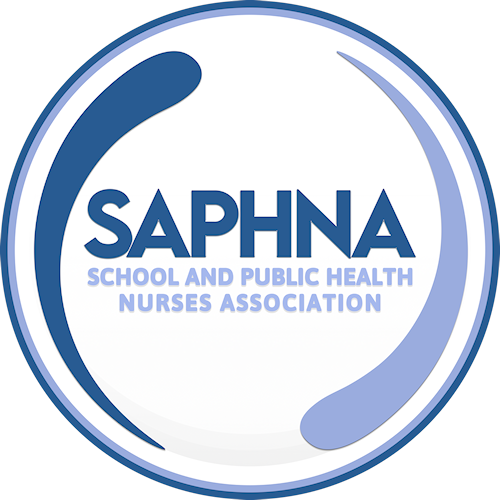The Safeguarding Role of Public Health 0-19 Services. Joint Policy Position
8 November 2024SAPHNA in collaboration with the Association of Directors of Public Health (ADPH) and the Institute of Health Visitors (iHV) have published a joint policy position on the ‘The Safeguarding Role of Public Health 0-19 Services’.

The-Safeguarding-Role-of-Public-Health-0-19-services
The statement comes following a significant rise in the number of babies, children and young people needing support for safeguarding issues who fall below the threshold for children’s social care services. To bridge this gap, health visitors and school nurses are increasingly called upon to support children and young people on Child Protection and Child in Need Plans. At the same time, child health is deteriorating, and health inequalities are widening across the nation – with an equally important call for health visitors and school nurses to utilise their specialist public health nursing skills to support the national shift from “sickness to prevention”. Meanwhile, services need to find a way to reconcile these two competing priorities.
Sharon White OBE, SAPHNA’s Chief Executive, said:
“Safeguarding is central to the role of school nurses and is a core thread through the Healthy Child Programme. SAPHNA’s position is that school and public health nurses are most effective and impactful when able to use their specialist knowledge and skills at the promotion, prevention, and early intervention end of the safeguarding continuum.
“The cost saving benefit of public health has been shown to have significant returns on investment in the wider health and social care economy. And yet, in SAPHNA’s inaugural survey of School Nurses, The Forgotten Frontline, launched in October 2024, 71% of respondents stated that they have seen an increase in the number of children who they support on child protection plans and 67% noted an increase in children in need plans. 38% of respondents in England indicated that they spent over half of their time supporting children on child protection plans.
“School nurses shared their frustration about the impact that this has on their wider public health role. They felt that they are ‘at the table’ as the ‘health representative’ however are not always best placed to be supporting the child. SAPHNA welcome the clarification that this position policy will offer for both the workforce and partner agencies.”






